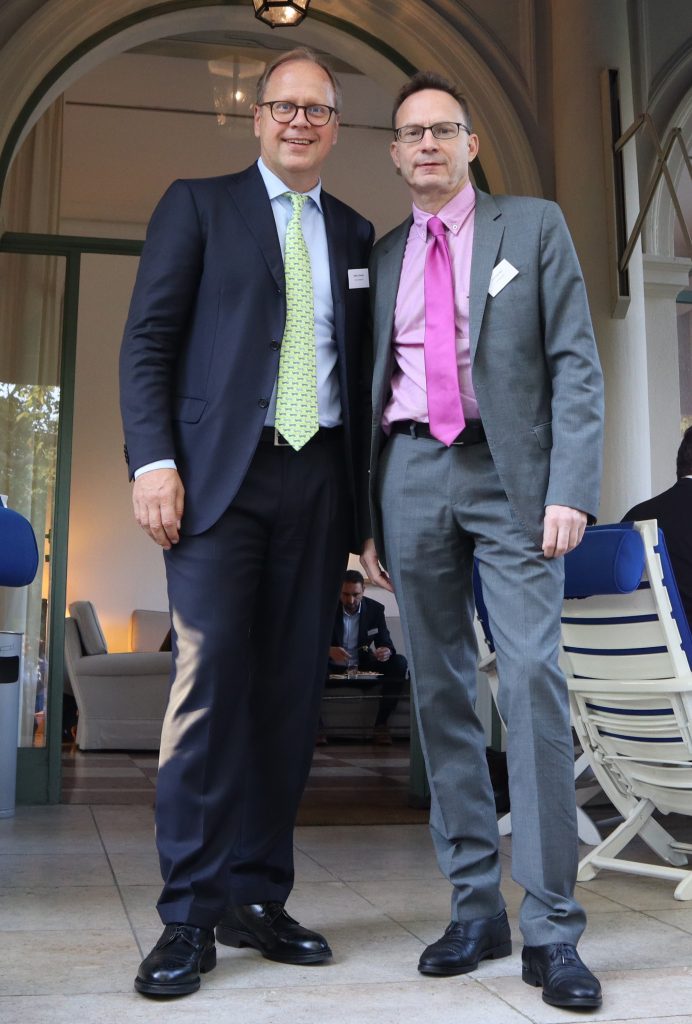“We are very patient” (Jean Marie Eveillard) is a mindset that many fund boutiques follow in the field of value investing. Markus Hill spoke on behalf of FONDSBOUTIQUEN.DE with Stefan Rehder, Managing Director and CIO of the asset manager Value Intelligence Advisors, about the importance of factors such as patience, slowness, risk management, eagerness to learn and the classification of investment styles – interesting minds in this area: Jean-Marie Eveillard, Warren Buffett, Bruce Greenwald, Benjamin Graham. Mr. Rehder also spoke about the importance of “antennas” (macroeconomics, politics etc.) in portfolio management and the role of family offices as value investors.
Hill: How would you describe your investment approach?
Rehder: I am convinced that avoiding losses is the key to attractive long-term returns on the equity market. I was influenced in this respect by Jean-Marie Eveillard, one of the most successful global value investors. The implementation of his value-oriented “Slow & Steady” investment philosophy is comparatively challenging, as it demands a great deal of patience from both the fund manager and the fund investor. Moving forward cautiously and at a turtle, speed is not for everyone, especially in bull markets. In the current environment, on the other hand, the sense of what makes sense becomes clearer more quickly.
Hill: Where do you see the difference in other value approaches?
Rehder: Stylistically, we are at the Buffett end of the value spectrum. We like to invest in quality companies with pricing power and have little fear of growth, as long as it is protected by market entry barriers. Our company analysis is based on the teachings of our mentor Prof. Bruce Greenwald, who taught Buffett’s style of company valuation at Columbia University for more than two decades. Another important difference to other value approaches is the scope of risk management. Organizational theory has shown that companies are particularly resilient when they have numerous antennae in the environment. I interpret the construction of a resilient portfolio in a similar way. For me, macro, sustainability, or political analyses are also potentially important antennas in the context of risk management.

Hill: In your opinion, has value investing changed?
Rehder: Yes and no. Since Benjamin Graham, value investors have tried to strictly separate the value and price of a company. In determining value, they are guided by average future conditions. The challenge of the present is that the world is in a paradigm shift and mean reversion is in many cases no longer a certainty. As a result, the rules of the game are changing fundamentally in numerous industries. At the same time, I argue that the policy of cheap money has had a massive positive influence on supply and demand in various industries. The answer to the question of whether, for example, the profit margins of the last 10 years are representative has become more complex.
Hill: Value Investing and Family Offices – what role does this fund selector group play for you and your funds?
Rehder: Family offices are our largest investor group, accounting for approximately 40% of assets under management. This is hardly surprising, as the focus on capital preservation is particularly strong here. The clients of family offices are often entrepreneurs who have worked hard for their money. They are less interested in maximum returns than in benefiting from the long-term yield advantages of shares with comparatively low risk. We have been very fortunate to find family offices that trust our approach and think long-term.
Hill: When you look back on the founding of your company – what conditions have you learned?
Rehder: The nice thing about my profession is that you can learn something new every day. VIA was founded in 2009, the first fund was launched in May 2010. Having previously worked for various banks, I found it a gift to be able to implement a value investing completely independently of the requirements of others. Over the years I had to learn that an approach that makes a lot of sense in the long run, still does not necessarily suit every client. In the meantime I have understood that it takes time to establish our all-weather funds. In the end, not only the process but also the results must be convincing.
Hill: What are you currently working on more intensively?
Rehder: In my opinion, the current investment environment is very complex and demanding. In this respect, there is a lot of work and comparatively little time to let one’s thoughts wander at the moment. In April, we added another member to our team, which means that I personally have even more time to focus on what I like to do best: Looking for attractive companies worldwide and familiarizing myself with interesting business models. I also spend more time than usual on the top-down perspective. I think we are living in extraordinary times in which economies are undergoing serious adjustment processes that will also have a lasting impact on the corporate level.
Hill: Thank you very much for the interview.
https://www.edudip.com/de/webinar/stuttgarter-fondsmanagerrunde/149790
FONDSBOUTIQUEN & MÜNCHEN:
https://www.via-value.de/de/
Photo: www.pixabay.com

One thought on “FUND BOUTIQUES & PRIVATE LABEL FUNDS: Value Investing, “Value versus Price” and the Importance of Family Offices as Investors (Interview & Webinar, 7.5.2020 – Stefan Rehder)”